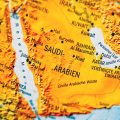DE FAAKTO INTELLIGENCE RESEARCH OBSERVATORY
SITUATION-EBOLA DEMOCRATIC REPUBLIC OF CONGO
BACKGROUND-EBOLA EPIDEMIC ONGOING 10 MONTHS IN DRC
The Ebola outbreak has been ongoing in Democratic Republic of Congo for 10 months now. The effort to contain and control the outbreak is hindered by complex issues.
- The security situation in DRC is impacting the response
- Populations are wary of outside help after years of rebel attacks (AP)
- Regions of DRC are active conflict zones with nearly 120 different armed groups that are fighting with each other and with the government (ReliefWeb.com)
- Battles between armed groups and acts of violence against civilians were common in the region before the start of the current Ebola outbreak (ReliefWeb.com)
- Violence have continued alongside the spread of Ebola and there is a rise in attacks against Ebola responders (ReliefWeb.com)
- In April 2019, 9 battles between armed groups and 14 acts of violence against civilians were reported in or near the health zones where the outbreak is active (ReliefWeb.com)
- There is a lack of trust in authorities in Congo because of insecurity and conflict (AP)
- It is challenging to control this type of outbreak without community involvement in rapid detection (WHO)
- 80 percent of Ebola cases are untraceable-officials cannot accurately track the spread of the virus
- Medical activities have been intermittently suspended by medical aid groups due to attacks on aid workers, several have been killed
Community Trust Issues That Need to be Overcome for a Better Response Include,
- Lack of trust-patients not seeking help- 40% of deaths outside medical centers
- Surveillance not effective- 35% of new cases are not linked to existing cases
- Security services-deployment is confused and hurting efforts- their role has never been to enforce sanitary measures
- Burial practices are poorly understood and offensive to relatives & community-Bodies wrapped in plastic and sprayed with chlorine, buried without ceremony, possessions burned
Failure to overcome grassroots problems surrounding, security, trust, burial practices, surveillance, detection, and infection control will continue to disrupt the arrest of Ebola in DRC Congo.
Lessons Learned – 2014 Ebola Outbreak in Liberia
Key Points
From Quartz Africa & Mosoka Fallah, Deputy Director General at National Public Health Institute of Liberia and Visiting Scientist, Harvard Medical School, who was on the ground as a lead coordinator for the 2014 national response to Ebola in Liberia,
- The Ebola outbreak in DRC is proving to be one of the most complex, deadly and unforgiving Ebola outbreaks
- Ebola is spreading in a war zone, which is a terrifying convergence
- Health workers are battling Ebola while being targeted by rebel forces
- There is a growing risk that Ebola will spill over to neighbouring countries, potentially spreading internationally
- In Liberia people were initially so afraid of health workers that they resisted treatment and ignored orders not to self-quarantine
- Ebola vaccine been given to more than 100,000 people in DRC. In addition, new experimental therapies are being used to treat infected patients. Health workers must find a way to break through to clear the path for an effective vaccination drive – and to ensure that opposition doesn’t quickly grow into resistance (Quartz Africa)
How is Mistrust and Resistance Overcome?
Engaging with Local Communities & Incentivizing Community Leaders
- Recruitment of active Ebola case finders for disease surveillance
- Incentivizing community leaders (chiefs, healers, women, priests) on a fixed stipend to head the response in their respective towns or villages, this will lead to a network of trusted messengers who can effectively communicate to a frightened, confused people
- Leading negotiations with hostile community members
- Finding ways to draw rebel groups into the prevention net, this has been tried elsewhere and should be replicated in DRC (Quartz Africa)
Incentives used during the Ebola Outbreak Liberia-2014
- A local gang that had been infected with Ebola was offered illicit drugs. There are no rules for this kind of unconventional engagement, in this case it worked. A self-quarantine of 32 homeless gang members was negotiated
- In order to access a dangerous area, food was offered to armed robbers in exchange for safe passage in order to treat local populations
- Food was used to incentivize a community response and volunteer self-quarantine for Ebola exposure
- Food has historically being used as a weapon of war, but was turned around in Liberia and used as a force for Ebola containment-This was done in collaboration with the World Food Programme
- Food was provided to entire villages where Ebola had occurred-Village leaders decided that for 21 days no one would leave their villages and no new visitors would be allowed (Quartz Africa)
What Could be Done in DRC to Control Warring Factions Where Ebola is Occurring?
- In the DRC major stakeholders could be engaged to support a “42 Day Cease Fire for Ebola”
- The ideal option is to appeal to all factions for a freeze on war for 42 days so that massive response efforts can be done
- This was done by James P. Grant, the distinguished late president of UNICEF, in El Salvador. He launched the “Days of Tranquility” to allow the warring factions to cease fire to allow immunization (Quartz Africa)
Quartz Africa https://qz.com/africa/1626503/dr-congo-ebola-crisis-needs-radical-ideas-from-liberia/
Reliefweb Via Mercy Corps https://reliefweb.int/report/democratic-republic-congo/community-mobilization-essential-stopping-spread-ebola
The Associated Press https://www.apnews.com/7c914ab1e8a44a3d93f8e9066b5863af






